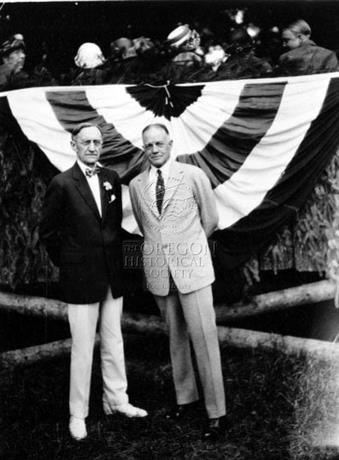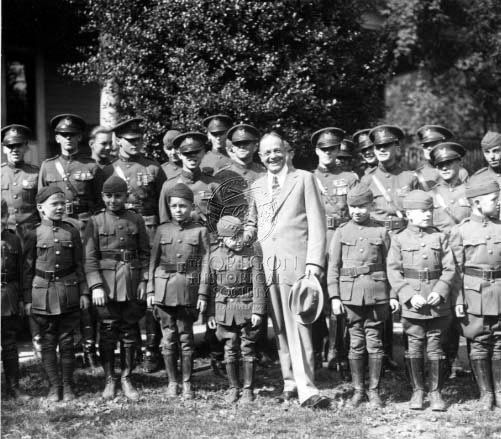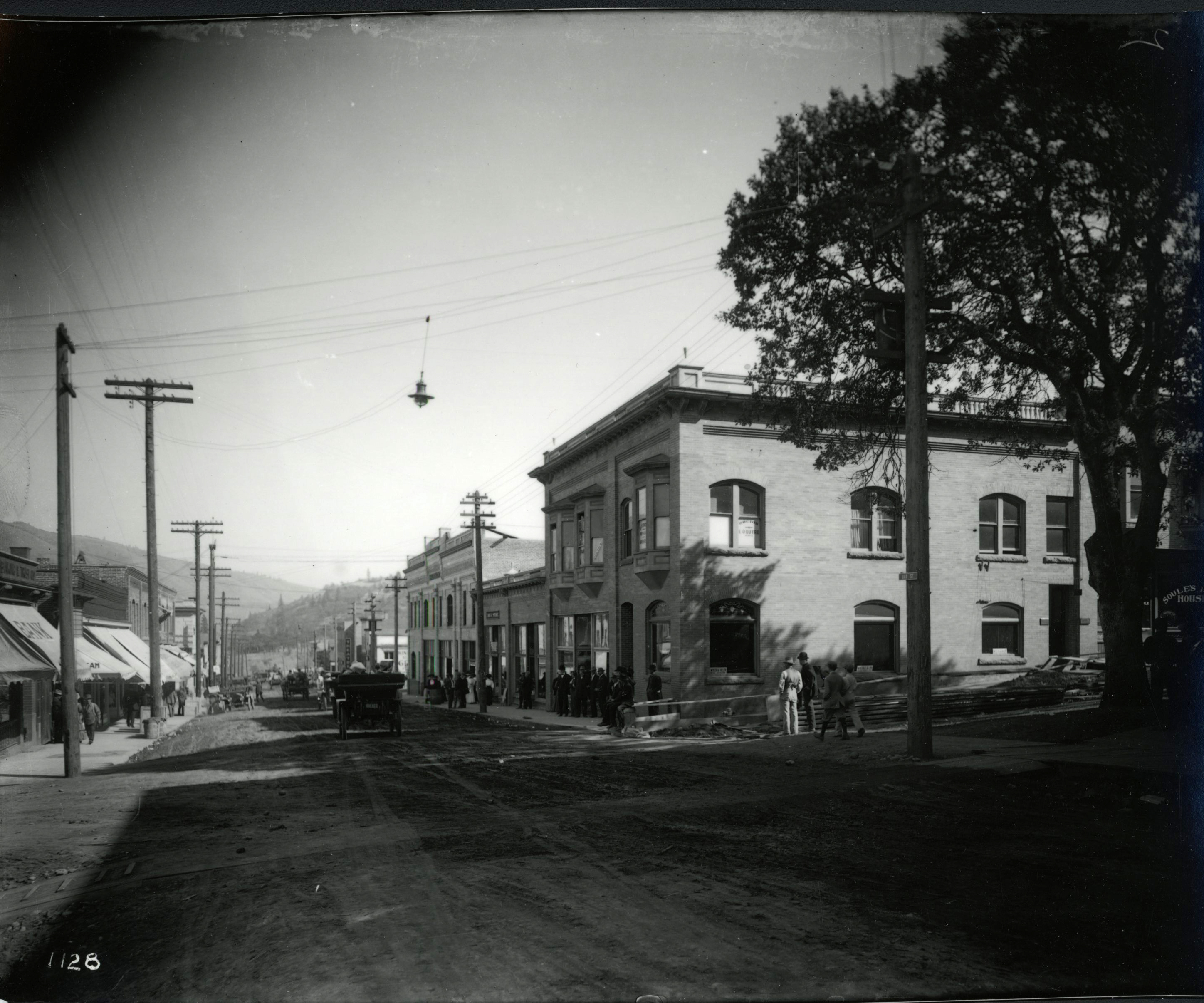Colorful evangelist William Ashley "Billy" Sunday and his wife Helen—usually called "Ma" or "Nell"—owned a farm in Oregon's Hood River Valley from 1909 to 1937. As the most popular American evangelist of the early 1900s, Sunday aimed his revivals at common folk, but he gained satisfaction and financial rewards from mingling with business and social elites.
After a difficult childhood in rural Iowa, Sunday played major league baseball before crusading against sinners, radicals, foreigners, booze, and evolution in a style notable for its athleticism and colloquialisms. In 1888, he married Helen Thompson. From a secure middle-class family in a Chicago suburb, she had a talent for business and was charming and chatty. The Sundays had three sons and a daughter; and by the early 1910s, they lived comfortably, dressed fashionably, and traveled first class in trains and by automobile.
The Sundays made their first trip to the Pacific Northwest when business and church leaders in Spokane, Washington, who were concerned about labor conflicts, saloons, and immorality, invited Sunday to hold a revival from December 1908 through January 1909. Afterward, flush with cash and positive reviews, they sought business opportunities in the Hood River Valley. They visited in February 1909 during a period of dramatic growth in the local economy and purchased land in April 1909.
Assisted by Billy’s brothers, the Sundays developed a model farm, which became a summer haven from the rigors of the revival circuit. Although keeping their primary home (named "Mount Hood") at Winona Lake, Indiana, they made new friends in the Hood River Valley and entertained prominent visitors on the farm. Billy was a celebrity and a neighbor, and he could neither escape nor voluntarily relinquish the limelight. He typically preached an "annual sermon" in the valley, and he and Ma often spoke to local organizations. If Billy was noticeably shy and reserved on the streets of Hood River, Ma was very personable, often punctuating her conversations with a vigorous slap on the back.
Coverage of the Sunday family in the Hood River and Portland newspapers paralleled the rise and decline of Billy's evangelistic career. His national prominence and influence faded rapidly after 1920. He continued to conduct lengthy revivals, including one in downtown Portland in 1925 that lasted six weeks, but by then his preaching style and conservative message had lost appeal. If neighborliness muted criticism within the valley, critics elsewhere in Oregon were not silent. Some tried to link him with the Ku Klux Klan; others dismissed him as a clownish Fundamentalist. Writers C.E.S. Wood, John Reed, and Stewart Holbrook ridiculed him and labeled him a tool of capitalists.
Sunday's income, family affairs, and health followed the downward spiral of his career. The well-publicized drinking and womanizing of the Sundays' sons brought scandal, and the death of their daughter, Helen Sunday Haines, in 1932 added tragedy to the family's circumstances. As the Great Depression worsened, Billy grew increasingly pessimistic. His health deteriorated, and he died from a heart attack in November 1935.
Hood River News editor Hugh G. Ball wrote that some locals disliked the tone and content of Sunday's preaching, but even they should remember him "as a staunch friend of Hood River valley, which he liked to call home." Ma Sunday, who outlived her husband and children, sold the farm in 1937, and descendants of the extended Sunday family still live in Oregon.
-
![]()
R.A. Long, founder of Longview, WA with Billy Sunday (on right), 1925.
Oregon Historical Society Research Library Oregon Journal Collection 012184
-
![]()
Billy Sunday with Hill Military cadets during a visit to Portland, c. 1925.
Oregon Historical Society Research Library, Benjamin Wood Hill Collection, Lot365-G1
Related Entries
Map This on the Oregon History WayFinder
The Oregon History Wayfinder is an interactive map that identifies significant places, people, and events in Oregon history.
Further Reading
Bruns, Roger A. Preacher: Billy Sunday and Big-Time American Evangelism. Urbana, ILL: Univ. of Illinois Press, 2002.
Dorsett, Lyle W. Billy Sunday and the Redemption of Urban America. Grand Rapids, Mich.: William B. Eerdman's Publishing Co., 1991.
Martin, Robert F. Hero of the Heartland: Billy Sunday and the Transformation of American Society, 1862-1935. Bloomington, IN: Indiana Univ. Press, 2002.



